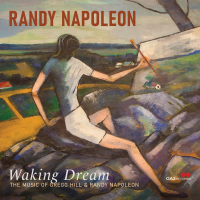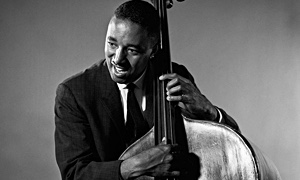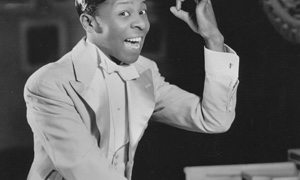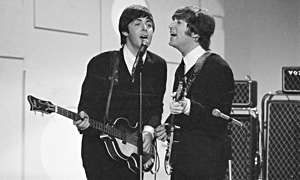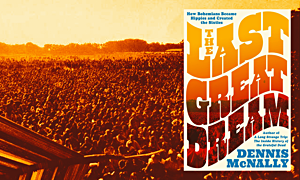Home » Jazz Articles » Book Review » The Gerry Mulligan 1950s Quartets
The Gerry Mulligan 1950s Quartets
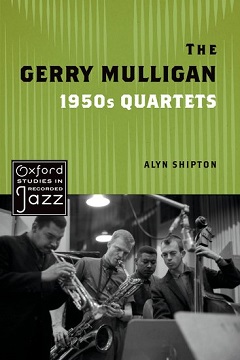 The Gerry Mulligan 1950s Quartets
The Gerry Mulligan 1950s Quartets Alyn Shipton
240 Pages
ISBN: 978-0197579763
Oxford University Press
2023
Several are the biographies of

Gerry Mulligan
saxophone, baritone1927 - 1996
Shipton, BBC Radio jazz presenter, accomplished bassist and jazz lecturer, has authored, edited and produced numerous jazz histories over many years, both in print and for radio broadcast. His meticulously researched appraisal of Mulligan's 1950s quartets is the eighth in OUP's Oxford Studies in Recorded Jazz, a series dedicated to the historical, cultural and technical analysis of jazz albums.
Previous volumes have tackled

Louis Armstrong
trumpet and vocals1901 - 1971

Miles Davis
trumpet1926 - 1991

Keith Jarrett
pianob.1945

Pat Metheny
guitarb.1954
Why, one might ask, do Mulligan's 1950s quartet's warrant a book all of their own? The answer, essentially, is that the absence of a piano or another chordal instrument in Mulligan's quartets signified an important departure from the norm at that time.
Shipton acknowledges that Mulligan might not have been the first to experiment so—

Art Farmer
flugelhorn1928 - 1999

Thelonious Monk
piano1917 - 1982
The chronological narrative begins and ends after the designated period of the book's title, but then context is everything. The author guides the reader from the mid- 1940s when Mulligan developed his considerable arranging skills in the big-bands of
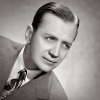
Tommy Tucker
multi-instrumentalist1903 - 1989

Elliot Lawrence
piano1925 - 2021

Gene Krupa
drums1909 - 1973

Claude Thornhill
vocals1909 - 1965

Miles Davis
trumpet1926 - 1991
Despite Mulligan's significant contribution to Davis' "collaborative experiment," Shipton's intention is not to revise history by overstating his role. Mulligan acknowledged Davis as the catalyst for the Birth of the Cool sessions, while in a 1988 interview

Gil Evans
composer / conductor1912 - 1988
Beginning in California in 1952, the quartet would be Mulligan's main vehicle for the next decade. The first quartet featured

Chet Baker
trumpet and vocals1929 - 1988

Bob Whitlock
bass1931 - 2015

Chico Hamilton
drums1921 - 2013
The celebrated quartet with Baker was, in retrospect, extremely short-lived, effectively breaking up following Mulligan's incarceration for possession of heroin in mid- 1953. Though they would attempt to rekindle the old flames in late 1957, Shipton pulls no punches in describing Reunion With Chet Baker (World Pacific, 1958) as "insipid."
Each album is dissected, song by song, with a critical eye. Mulligan's use of time signatures, the unusual length of musical segments and certain dramatic devices are all analysed. Who plays with who, the sequence of solos, what the bass and drums are doing—it is quite the forensic investigation.
At times, such detail may seem a little over the top, but the cumulative effect is akin to watching a mechanic strip an engine into its component parts and then reassemble it so that the inter-connected processes become clear. Shipton's insight and analysis lend credence to his claim that Mulligan's pianoless quartet created "a new genre of music."
Like the other titles in the Oxford Studies in Recorded Jazz series, musical examples abound. Over forty transcriptions serve to highlight the quartets' head arrangements, individual parts, solos, accompanists' roles and harmonic architecture. Mulligan's sextets, tentets and the Concert Jazz Band—whose methods fed into the quartets and vice versa—are also covered. These transcriptions should prove of particular interest to musicians.
The major episodes in Mulligan's life and career are duly addressed. His key relationships, his celebrity status—even a haircut was deemed newsworthy—and his collaborations with Thelonious Monk,

Stan Getz
saxophone, tenor1927 - 1991

Johnny Hodges
saxophone, alto1907 - 1970

Ben Webster
saxophone, tenor1909 - 1973

Andre Previn
piano1929 - 2019
There may be little in the way of new biographical detail on Mulligan, but Shipton's own interviews with quartet members Chico Hamilton,

Bill Crow
bass, acousticb.1927

Bob Brookmeyer
trombone1929 - 2011
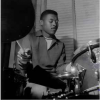
Dave Bailey
drums1926 - 2023

Henry Grimes
bass, acoustic1935 - 2020

Lee Konitz
saxophone, alto1927 - 2020

John Lewis
piano1920 - 2001

George Russell
composer / conductor1923 - 2009
An extensive, detailed discography—with full personnel, naturally—serves as a useful reference tool.
In shining the spotlight on a defining period of Mulligan's career, Shipton leaves no stone unturned. A worthwhile addition to the literature on Gerry Mulligan and a valuable aid to understanding a transformative period of modern jazz.
Tags
Comments
PREVIOUS / NEXT
Support All About Jazz
 All About Jazz has been a pillar of jazz since 1995, championing it as an art form and, more importantly, supporting the musicians who make it. Our enduring commitment has made "AAJ" one of the most culturally important websites of its kind, read by hundreds of thousands of fans, musicians and industry figures every month.
All About Jazz has been a pillar of jazz since 1995, championing it as an art form and, more importantly, supporting the musicians who make it. Our enduring commitment has made "AAJ" one of the most culturally important websites of its kind, read by hundreds of thousands of fans, musicians and industry figures every month.





 Buy Now
Buy Now



